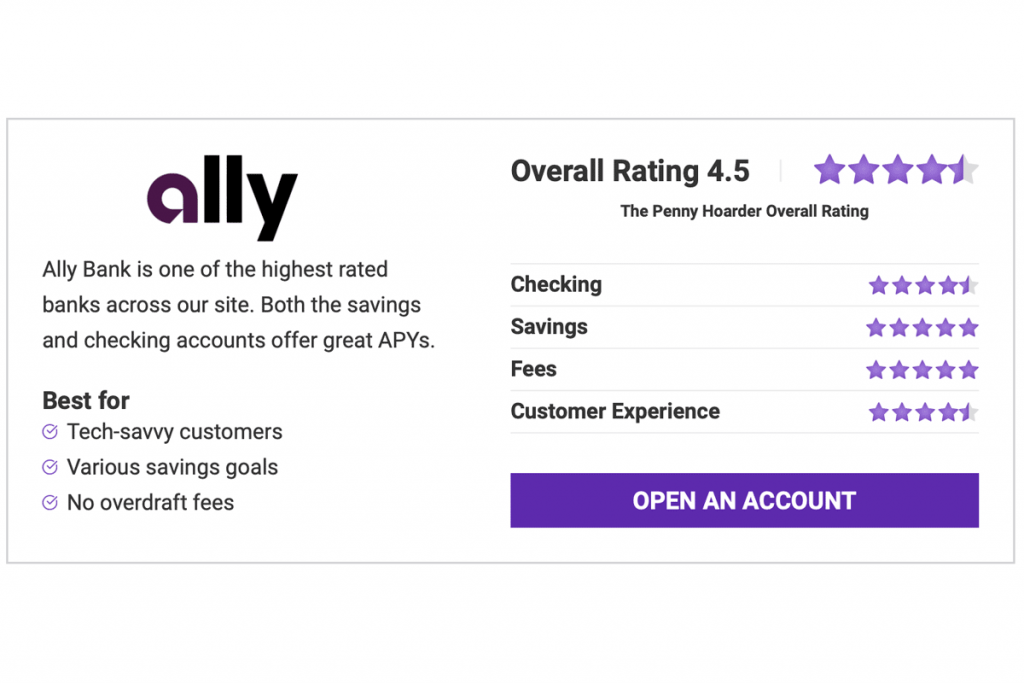After months of compiling notes and practicing pitches, contestants walk down a long, cavernous hallway, pass through wood-grain double doors and enter the scorching cone of the spotlight. The piercing gaze of their interrogators — who seem more like executioners — is hotter still.
Most contestants probably mutter to themselves “How did I get here?”
Millions of viewers watching at home wonder the same thing.
But these brave entrepreneurs have already passed the first test and figured out how to get on “Shark Tank.”
(Full disclosure: it’s long and grueling.)
Fret not. The Penny Hoarder talked to two successful “Shark Tank” contestants to help demystify the process.
Dawoon Kang, CEO and cofounder of Coffee Meets Bagel, pitched her business alongside her sister-cofounders Soo and Arum for season four. Coffee Meets Bagel is a dating app that combats what the founders see as a toxic, swipe-right dating culture by focusing on slow, meaningful relationships.
The Kang sisters didn’t walk away with a deal — they turned one down. Mark Cuban, the billionaire businessman and owner of the Dallas Mavericks, (in a rather controversial move because he was already “out”) asked the Kangs if they would sell their company for $30 million on the spot. They refused anyway.
Sara Margulis and her husband, Josh, appeared on season six to pitch Honeyfund, their wedding-gift and honeymoon registry website. Honeyfund is the brainchild of their own honeymoon experience: Josh built a website for his family and friends to crowdsource their dream honeymoon to Fiji.
The Sharks loved the idea, and the Margulises walked out with a non-equity deal from the Canadian multimillionaire Kevin O’Leary, aka Mr. Wonderful.
How to Get on ‘Shark Tank’
After a decade and more than 300 episodes, the entrepreneur-themed reality show is still going strong. Ratings have waned in recent years, but September’s season 14 premiere still drew in about 4.7 million viewers.
Depending on the season, “Shark Tank” producers get between 45,000 and 100,000 applications, according to various reports. Around 100 pitches make it to the viewers’ eyes each season.
Translation: It’s really, really hard to make it on the show. Applicants have a better chance of getting accepted into both Harvard and Yale.
But this insider advice from Kang and Margulis is sure to help those odds.
Option One: Apply Online
Currently, everyone who applies for “Shark Tank” does it online. Kang and Margulis included, technically. In both their cases, the producers of “Shark Tank” reached out to them first and encouraged them to apply.
“Some people on the show were using [Coffee Meets Bagel] and thought it was a really interesting concept, so they reached out to us,” Kang said.
But they still had to fill out the application, and it’s a doozy. All applicants must first complete a short screener questionnaire that asks background basics and for a brief description of the company or product.
The Shark Tank team will review those applications and reach out for more information for those they’re interested in.
That could include a 17-page document that explains your business’s backstory, numbers, stage of development, need for capital and more. It took Kang and Margulis both many months to fill out.
If all goes well after the paperwork, the producers will request multiple pitch videos to see if your business comes across well on camera.
When filming your video pitch, be sure to be expressive, use good lighting and prep your hair, makeup and wardrobe as if you were going on live television.
“Speak succinctly about your company, just as you would if you’re cast on the show,” Margulis said.
Option Two: Attend an Open ‘Shark Tank’ Casting Call
Unfortunately, open casting calls have been canceled for the upcoming Season 15 “in accordance with efforts to mitigate the spread of COVID-19.” Applications will be online-only “for the foreseeable future,” according to the show’s website.
In previous seasons, contestant-entrepreneurs had the chance to apply in-person in various U.S. cities up to two months before the season premiered.
But just showing up to one of the casting call locations did not mean you were guaranteed an audition. Lines formed in the early morning hours, and there was only a two-hour time frame when the casting crew distributed wristbands. Not everyone got one.
And to audition, in the words of Paul Simon: “Wristband, my man, you got to have a wristband.”
Preparation is key for casting calls because a completed 17-page application is due on the date of the audition. Be ready to “wow and dazzle” the crew with a well-rehearsed one-minute presentation.
For open casting calls, there’s no guarantee of internet access, AV hook-ups or electricity. Keep your pitch low-tech. Check ABC’s open-call schedule to see when in-person auditions return.
Insider Tips on Preparing for ‘Shark Tank’
So you slayed the audition and figured out how to get on “Shark Tank.” Now you have to actually … go on TV.
But before you shell out cash for strobe lights and models for an extravagant on-air presentation, make sure you have the basics down. Namely, your business pitch. Even if you don’t make it to the Sharks, the benefits of a well-crafted business pitch are endless.
“At the same time that you’re working on the visual presentation,” Margulis said, “you’re also working through the points of the business, what you’re asking for what percentage of the company, and answering a bunch of business questions.”
Here’s what else to do once that spotlight is on you.
Hook the Sharks
The Sharks are suckers for a good, relatable story. Gimmicks like models and corny platitudes might get a chuckle but not an investment. The Kang sisters crafted a hook that doubled as their origin story, which highlighted their journey from South Korea to Silicon Valley. And the Margulises went for a subtly Fiji-themed presentation to highlight how their personal honeymoon experience led to Honeyfund’s launch.
“Play to your strengths,” Kang said. “You want to stand out and differentiate yourself because they hear pitches all day long.”
Know Your Audience
Each episode of “Shark Tank” features five of the six permanent Shark-investors. The contestants don’t know who will be there on the day of the show, so it’s good to have a few Sharks in mind who you want to make a deal with, in case your top pick isn’t there. In recent seasons, the show includes some wildcards like billionaire Richard Branson, actor Ashton Kutcher and NBA legend Charles Barkley.
“Have a sense of who each Shark is, what kinds of deals they like to do and what kind of products and services they like to invest in,” Margulis said.
But don’t forget about the audience at home. Have a presentation that also resonates with the average viewer.
“You want to make sure you’re being energetic,” Kang said. “It can feel really flat if you’re not able to express your emotions. The audience watching the show would have a hard time connecting.”
Arm Yourself With Numbers
At the very least, every contestant on “Shark Tank” needs a specific ask in the format of “x% of my business for $x.” The obvious follow-up to that question is, “How did you come to that valuation?” And that’s likely just the first question in a coming onslaught.
“We had a stack of flashcards four-inches thick,” Margulis said, which detailed revenue, sales and projected growth numbers.
“You have to be able to succinctly tell [the Sharks] how their money is going to grow your company and return back to them,” she added. “Even better if you can say, ‘Hey Sharks, I have XYZ opportunities in front of me, but I can’t execute on these without your money.’”
Be Fair
In addition to the million other things to be aware of, it’s important to stay in the moment and dedicate time to address each Shark. They are a bunch of big media personalities, and they all want your attention. For example, if you have an infomercial-ready product, you might be itching for a deal with Lori Greiner, dubbed the “Queen of QVC.” But don’t ignore the other Sharks.
“Investor fit is always important,” Margulis said, but if you’re not fully answering the other Sharks’ questions, it could backfire in more ways than one.
The other Sharks might “go out,” which means less competition (and likely a worse deal). They will also be less likely to give you advice.
“We definitely got some good feedback from the Sharks while we were in the Tank,” Margulis said.
Even though Honeyfund took a deal with Kevin O’Leary, “Mark [Cuban] said that he thought it was a bad idea to go after other events beyond the wedding before we had really cornered the market in the wedding space,” Margulis said.
“That’s the thing that has stuck with me.”
Adam Hardy is a former staff writer at The Penny Hoarder. Freelancer Cassidy Alexander contributed tot his post.
Does all this “Shark Tank” talk have you ready to plunge into your own business venture? Read on.
Credit: Source link














